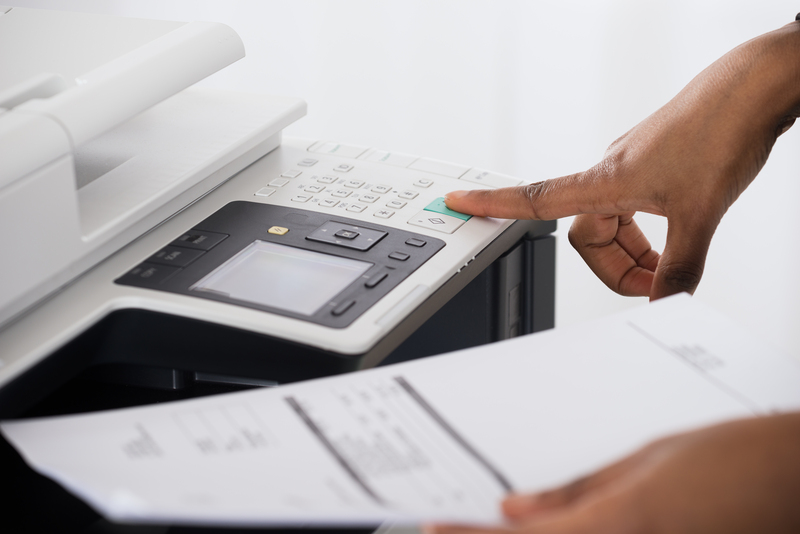Achieve Smooth Skip Hire: Dos and Don'ts
Are you planning a large home renovation or a garden clean-up and feeling overwhelmed by the waste management process? Skip hire is an efficient and practical solution for handling substantial volumes of rubbish, but without proper guidance, it can turn into a logistical nightmare. In this article, we'll walk you through essential skip hire tips, exploring the key dos and don'ts of skip bin hire to ensure your experience is seamless, eco-friendly, and cost-effective.

Understanding Skip Hire: What is it and Why is it Useful?
Skip hire refers to the process of renting a large container (skip) to collect and remove waste from your property. These skips come in multiple sizes and can handle everything from construction debris to household rubbish. It's a popular choice in both domestic and commercial settings for its convenience, scalability, and environmental advantages.
- Time-saving: Skip bins allow for all waste to be collected at your convenience.
- Efficient Waste Management: Streamlines the process of rubbish removal, especially during busy renovations or clear-outs.
- Environmentally Friendly: Reputable firms sort, recycle, and dispose of waste responsibly, reducing landfill strain.
The Importance of Proper Skip Hire Planning
Successful skip hire begins long before the bin arrives at your property. Preparation and knowledge of rules and regulations make all the difference between a quick, clean job and a stressful ordeal.
Key Reasons to Plan Your Skip Hire:
- Permit Requirements: Local councils often have strict guidelines for skips placed on public land.
- Size Matter: Picking the right bin avoids overspending or inefficiently loaded skips.
- Waste Restrictions: Not everything can go in a skip--certain items require special handling and disposal.
The Dos of Skip Hire
1. Choose the Right Skip Size
Selecting an appropriate skip size is crucial. Overestimating leads to unnecessary expense, while underestimating risks needing an extra skip. Here's a basic guide:
- Mini & Midi Skips (2-4 cubic yards): Perfect for minor home projects or garden waste.
- Builder's Skips (6-8 cubic yards): Ideal for renovation projects and larger clean-outs.
- Large Skips (10-16 cubic yards): Best for bulky items, commercial projects, and major clearances.
If unsure, always contact your skip hire company--they'll recommend a suitable size based on your waste type and volume.
2. Obtain Necessary Permits
If your skip will be placed on a public road, pavement, or verge, you'll usually need a permit from the local council. Failure to obtain this can result in fines or removal of the skip.
- Check your local authority's website for permit details and timelines.
- Some skip hire companies will handle permit applications for you, so ask in advance.
3. Load the Skip Responsibly
Efficient loading saves space and money. Distribute weight evenly, and break down bulky items (like furniture) where possible. Fill larger gaps with smaller debris to maximise capacity.
- Place heavier items at the bottom for stability.
- Don't overload the skip above the rim--this is both unsafe and illegal.
- Organise waste in layers, not random piles.
4. Separate Restricted Items
Not everything is suitable for skip disposal. Hazardous waste (e.g., asbestos, chemicals, tyres, batteries, fridges) requires separate, specialist removal due to environmental regulations.
- Read the skip provider's terms for a full list of banned items.
- Ask about greener alternatives for items that can't go into a skip.
5. Compare Multiple Skip Hire Providers
Don't settle for the first quote you receive. Comparing options ensures you get best value and a service tailored to your needs.
- Check for extra charges (e.g., permit administration, overfilling fees, restricted items)
- Read reviews for reliability and customer service.
- Check if recycling and environmental commitments match your values.
6. Schedule with Precision
Plan the delivery and collection dates carefully. This helps avoid delays, extra charges, or having a skip blocking access for longer than necessary.
- Inform neighbours if access or parking may be affected.
- Allow time to fill the bin without rushing and risking injury.
7. Choose a Reputable, Licensed Firm
Only hire skips from registered waste carriers. Illegal or unethical operators may fly-tip your waste, leading to prosecution or fines for you. Ask for carrier registration numbers if in doubt.
The Don'ts of Skip Bin Hire
1. Don't Overfill Your Skip
Never fill a skip beyond its top edge. Overfilled skips are unsafe for transportation and may result in the provider refusing to remove the skip until waste is properly reduced.
- Excess rubbish left on-site is your responsibility to clear.
- Overfilling can incur extra costs or legal penalties.
2. Don't Mix Prohibited Items
Mixing restricted or hazardous items with general waste can contaminate entire loads and face expensive surcharges--or even delays if the provider refuses collection.
- If in doubt, ask your skip company before discarding unusual waste.
3. Don't Block Access
Ensure there's clear, sufficient access for the delivery and removal truck. Obstacles like parked cars, overhanging trees, or narrow lanes can prevent the skip from being placed or collected.
- Measure clearances in advance.
- Leave extra space for truck manoeuvring if possible.
4. Don't Ignore Local Regulations
Regulations vary by area, particularly regarding skip placement and types of allowed waste. Avoid legal trouble and community complaints by following local guidelines.
5. Don't Delay Collection
An overstayed skip is unsightly and can attract fly-tipping. Schedule collection as soon as your skip is full to avoid unnecessary rental charges or neighbourly disputes.
- Contact your provider for early collection if you finish ahead of schedule.
6. Don't Attempt to Move the Skip Yourself
Skips are placed using specialist lorries for a reason--they're heavy and awkward. Never attempt to move a skip with your own vehicle or by hand, as this could damage property, injure you, and potentially void insurance.
Environmental Dos and Don'ts When Hiring a Skip
Eco-Friendly Skip Practices
- Sort recyclable materials (wood, metal, glass) for easier processing at the depot.
- Use skips for waste only when truly necessary--donate usable goods, recycle, or upcycle first.
- Enquire if your skip hire company has a recycling guarantee or green policy.
Avoid Environmental Risks
- Never dispose of chemicals, paint, or batteries in a skip.
- Don't burn waste in or near the skip--this is dangerous and illegal in most areas.
Common Questions About Skip Hire
What size skip do I really need?
Estimate your waste and round up if unsure. Smaller skips are cheaper, but ordering a second one is usually less cost-effective than selecting a slightly larger size the first time.
How long can I keep a hired skip?
Most skip hire periods range from a few days up to two weeks. Longer-term arrangements are possible; discuss your needs with your supplier, though this may affect cost.
Is there anything I can't put in my skip bin?
Yes--most skips prohibit:
- Asbestos
- Tyres
- Paint and solvents
- Batteries and electronics
- Fridges, freezers, and air conditioning units
- Medical or clinical waste
Consult your skip provider for a full exclusion list.
Can I hire a skip for commercial projects?
Absolutely! Commercial skip hire is perfect for builders, construction sites, offices, and shops undertaking refits or clear-outs. Arrange scheduled exchanges for long-term or high-volume jobs.
Ways to Maximise the Efficiency of Your Skip Hire
Skip Placement Tips
- Place the skip as close to your work site as possible to reduce heavy lifting distance.
- If space is tight, opt for a lockable skip lid to prevent others from dumping their rubbish in your bin.
- If placing on a driveway, use boards underneath to protect surfaces from skid marks.
Save Money on Your Skip Hire
- Only book the size you need. Consult with the rental provider before finalising.
- Reuse and donate before disposing to reduce both skip size and environmental impact.
- Time your hire with your project plan to avoid rental extensions.
Effective Waste Sorting
- If your site will generate a lot of one kind of recyclable waste (e.g., rubble, metal), ask the provider about dedicated bins for discounts and recycling ease.
- Mark or cordon the skip area to prevent non-hire-related dumping (fly-tipping) by others.

Conclusion: Achieving a Seamless Skip Hire Experience
Hiring a skip doesn't have to be complicated, costly, or chaotic. By planning thoroughly, following local rules, and working only with trustworthy providers, you can streamline your waste disposal and focus on your main project. Remember--the dos and don'ts of skip hire are designed to save you time, money, and stress while protecting the environment and your community.
- Choose the right skip size and supplier.
- Obtain permits if required.
- Load responsibly and within legal limits.
- Respect restrictions on hazardous waste.
- Arrange timely collection and avoid extended on-site periods.
If you're embarking on your next big project, let these expert skip hire tips guide you for a trouble-free, efficient, and environmentally responsible solution. Achieve smooth skip hire today by embracing these essential dos and don'ts!
Further Resources for Skip Hire Success
- UK Government Guide: Waste Duties of Care for Householders
- Recycle Now: National Recycling Information
- Environment Agency: Licensed Waste Carriers List
For personalised advice and to ensure you comply with all relevant guidelines, consult your local council or licensed skip hire company.